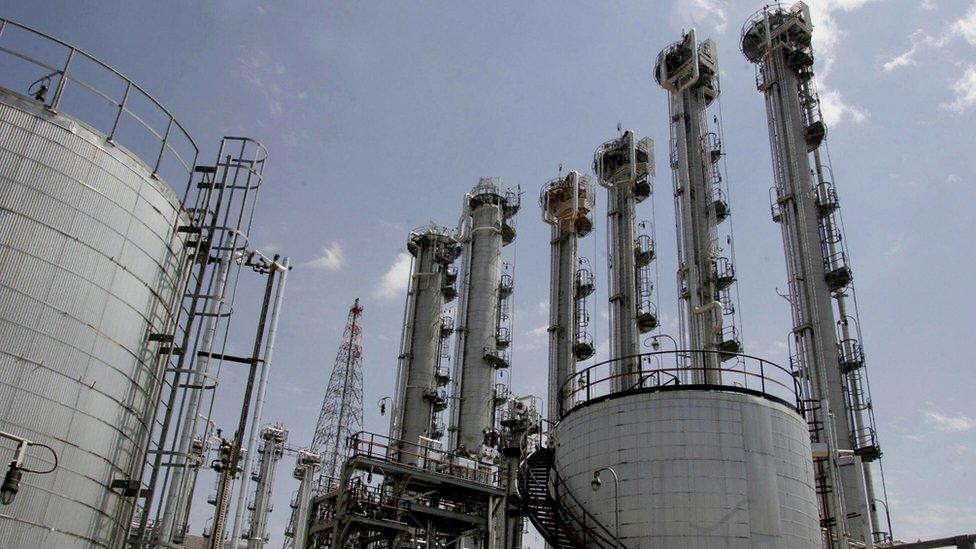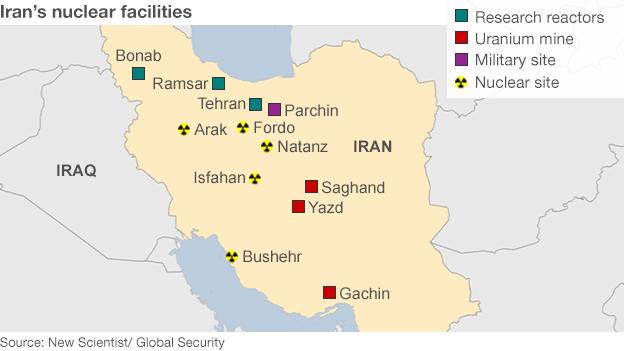Russia resumes nuclear trade with Iran as sanctions lifted
- Published

Russian technicians will help modify the Arak heavy water plant, south of Tehran
Russia will resume exporting nuclear technology to Iran, President Vladimir Putin has decreed on a visit to Tehran.
The move follows Iran's agreement to international curbs on its nuclear programme. UN sanctions against Iran are to be lifted in exchange for that agreement, under a deal signed in July.
Russia says it will help Iran's export of enriched uranium and modification of nuclear facilities at Arak and Fordo.
Iran says its nuclear programme is only for civilian, not military, purposes.
Mr Putin is in Tehran to attend a summit of gas exporting countries.
His talks with Iranian leaders are likely to focus on the war in Syria, where Russia and Iran are the main military backers of President Bashar al-Assad.
Russia has been conducting intense air and missile strikes against Syrian rebels including so-called Islamic State (IS), while Iran has been helping Mr Assad's forces on the ground.
Under the July nuclear deal, six world powers secured a pledge by Iran to set long-term limits on its nuclear research.
Iran's low-enriched uranium stockpile will be reduced by 98% to 300kg for 15 years.

In a decree published on Monday, President Putin said Russia would support Iranian efforts to export any surplus enriched uranium - that is, above the 300kg limit - by sending raw uranium to Iran in exchange.
Russia will also help Iran to modernise the heavy water reactor at Arak and to modify two cascades at its Fordo uranium enrichment plant.
Low-enriched uranium, which has a 3%-4% concentration of the isotope U-235, can be used to produce fuel for nuclear power plants. But it can also be enriched more highly to the 90% needed to produce nuclear weapons.
Iran's nuclear programme remains controversial and is under close international scrutiny. Israel and many US politicians are staunchly opposed to the deal on lifting sanctions.